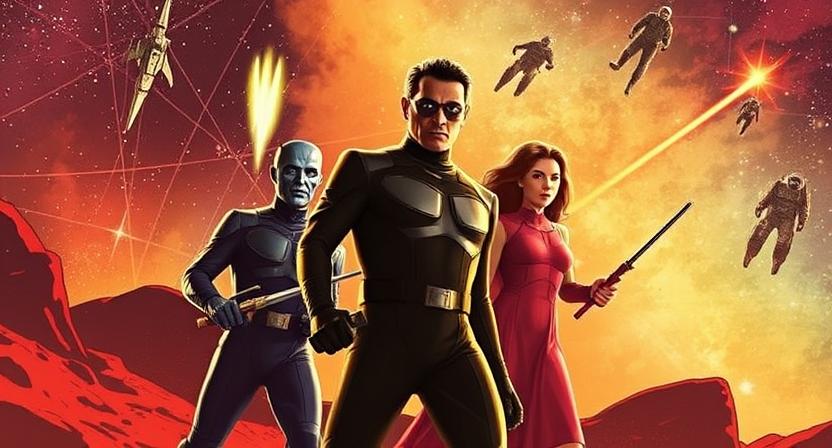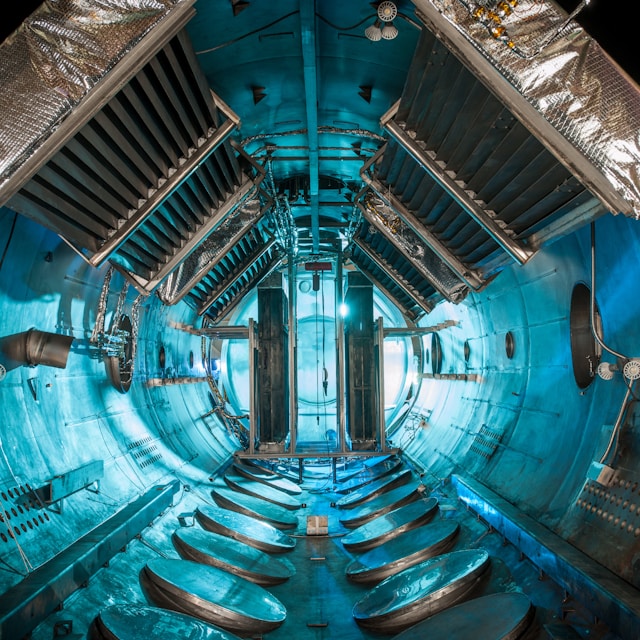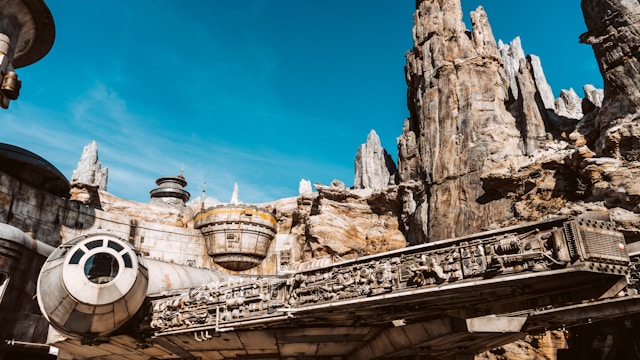The Beginning of Sci-Fi Television
The inception of science fiction television can be traced back to the early days of broadcast television. It all started in the 1950s when shows like “The Twilight Zone” and “The Outer Limits” captivated audiences with their futuristic concepts and imaginative storytelling. These pioneering series laid the groundwork for the sci-fi television genre, paving the way for the plethora of shows that would follow in the decades to come.
As technology advanced and production values improved, sci-fi television expanded its horizons, pushing the boundaries of creativity and visual effects. The early black-and-white days gave rise to colorful alien worlds and high-tech spacecraft, captivating viewers with the possibilities of the unknown. From cheesy special effects to sophisticated CGI, the evolution of sci-fi television has been a visual feast for the adventurous minds of audiences around the globe.
• The Twilight Zone and The Outer Limits were among the first sci-fi television shows in the 1950s
• These pioneering series set the foundation for the sci-fi genre on television
• Advancements in technology allowed for more creative storytelling and visual effects in sci-fi TV
• From black-and-white to colorful alien worlds, sci-fi television has evolved visually over the years
• Cheesy special effects have given way to sophisticated CGI, enhancing the viewing experience
Exploring the Roots of Sci-Fi Series
Science fiction television series have a rich history that dates back to the early days of television. These shows, with their imaginative storytelling and futuristic settings, captured the imaginations of viewers and paved the way for the genre to thrive on the small screen. From the pioneering efforts of programs like “The Twilight Zone” and “Star Trek” to the diverse array of sci-fi series that followed, the roots of this genre run deep, influencing countless creators and audiences alike.
The foundation laid by these early sci-fi shows continues to shape the landscape of television today. As technology has advanced and storytelling techniques have evolved, sci-fi series have pushed the boundaries of what is possible on screen. Whether exploring alternate realities, time travel, or extraterrestrial encounters, these shows continue to captivate viewers with their thought-provoking themes and captivating worlds. The roots of sci-fi series are firmly planted in the realm of limitless imagination, offering a glimpse into what the future may hold for both television and society as a whole.
• Science fiction television series have a rich history that dates back to the early days of television.
• Shows like “The Twilight Zone” and “Star Trek” paved the way for the genre to thrive on the small screen.
• The roots of this genre run deep, influencing countless creators and audiences alike.
• Technology advancements have allowed sci-fi series to push boundaries and explore new storytelling techniques.
• Sci-fi shows continue to captivate viewers with thought-provoking themes and captivating worlds.
The Evolution of Sci-Fi Worlds on TV
From the depths of the vast cosmos to the inner workings of futuristic societies, science fiction television has continuously evolved, captivating audiences with its imaginative worlds. The early days of sci-fi on TV introduced viewers to simple yet captivating worlds where humans ventured into space, encountering strange beings and advanced technologies. As the genre progressed, the worlds created became more intricate and sophisticated, with creators delving into complex themes such as artificial intelligence, alternate realities, and the consequences of scientific advancements.
With the advancement of visual effects and storytelling techniques, sci-fi series began to transport audiences to visually stunning and intricately designed worlds that sparked the imagination. From alien planets teeming with diverse life forms to dystopian futures plagued by societal collapse, each world painted on the TV screen offered a glimpse into the endless possibilities of the human imagination. The evolution of sci-fi worlds on TV reflects not only the advancements in technology and production capabilities but also the ever-expanding boundaries of creativity and storytelling in the realm of science fiction television.
• The early days of sci-fi on TV introduced viewers to simple yet captivating worlds
• Worlds created became more intricate and sophisticated as the genre progressed
• Visual effects and storytelling techniques advanced, transporting audiences to visually stunning worlds
• Sci-fi series showcased alien planets teeming with diverse life forms and dystopian futures
• Evolution of sci-fi worlds reflects advancements in technology, production capabilities, creativity, and storytelling
Diving into the Imaginative Universes of Sci-Fi Shows
Imaginative universes in sci-fi television series have captivated audiences for decades, transporting viewers to realms beyond our wildest dreams. From dystopian futures to advanced civilizations in distant galaxies, these shows offer a glimpse into alternate realities that spark the imagination and push the boundaries of what is possible. The intricate worldbuilding in sci-fi shows creates rich tapestries of complex societies, technologies, and alien species that immerse viewers in a fantastical landscape of wonder and intrigue.
Through the lens of science fiction, creators have the freedom to explore profound philosophical questions, social issues, and ethical dilemmas in a way that transcends the constraints of reality. These imaginative universes often serve as allegories for our own world, shedding light on contemporary concerns and offering fresh perspectives on the human condition. Sci-fi shows challenge viewers to contemplate the infinite possibilities of the universe and contemplate the profound impact of technology and innovation on society.
• The worldbuilding in sci-fi shows creates intricate societies, technologies, and alien species
• Sci-fi shows offer a glimpse into alternate realities that spark the imagination
• Creators have the freedom to explore profound philosophical questions and ethical dilemmas through science fiction
• Imaginative universes in sci-fi serve as allegories for our own world, shedding light on contemporary concerns
The Impact of Sci-Fi TV Series on Pop Culture
Sci-fi TV series have undeniably left a lasting mark on popular culture. From beloved classics like “Star Trek” and “Doctor Who” to modern hits like “Stranger Things” and “Black Mirror,” these shows have captured the imagination of audiences worldwide. Their influence extends beyond mere entertainment, shaping the way we think about technology, society, and the unknown.
The impact of sci-fi TV series can be seen in various aspects of pop culture, from fashion trends to language to the way we envision the future. The iconic characters, intricate worlds, and thought-provoking themes presented in these shows have sparked conversations, inspired creativity, and pushed the boundaries of storytelling. As fans eagerly await new episodes and immerse themselves in fan theories, the legacy of sci-fi TV on pop culture continues to thrive and evolve.
• Sci-fi TV series have sparked conversations and inspired creativity
• The intricate worlds and thought-provoking themes push the boundaries of storytelling
• Fans eagerly await new episodes and immerse themselves in fan theories
• Pop culture is influenced by sci-fi TV series in various aspects, from fashion trends to language to envisioning the future
Unforgettable Characters in Sci-Fi Television
As viewers delve into the vast and imaginative worlds of science fiction television, they often find themselves captivated by the unforgettable characters that inhabit these futuristic landscapes. From courageous space explorers to enigmatic alien beings, the characters in sci-fi series leave a lasting impression on audiences worldwide. Each character brings a unique perspective and dimension to the storylines, adding depth and complexity to the narratives that unfold on screen.
Whether they are human, android, or extraterrestrial, these characters resonate with viewers on a personal level, drawing them into the extraordinary adventures and dilemmas that define the sci-fi genre. Their personalities, motivations, and relationships with one another create a rich tapestry of storytelling that continues to fascinate and inspire fans across generations. As fans reflect on their favorite sci-fi series, it is often the unforgettable characters that stand out as the heart and soul of these beloved shows.
• One of the most iconic characters in sci-fi television is Captain Jean-Luc Picard from “Star Trek: The Next Generation.”
• Another unforgettable character is Dana Scully from “The X-Files,” whose skepticism and scientific approach added a unique dynamic to the show.
• The enigmatic android Data from “Star Trek: The Next Generation” captivated audiences with his quest to understand humanity.
• Delenn from “Babylon 5” stands out as a powerful and wise alien ambassador, navigating complex interstellar politics with grace and strength.
Examining the Technology in Sci-Fi Shows
In the realm of science fiction television, the technology showcased often blurs the lines between fiction and reality. From faster-than-light warp drives to advanced artificial intelligence, sci-fi shows push the boundaries of what is possible in the realm of technology. Viewers are introduced to a myriad of futuristic gadgets and gizmos that not only serve to enhance the storytelling but also spark the imagination of audiences worldwide.
The level of detail and creativity that goes into crafting the technology in sci-fi shows is truly remarkable. Whether it’s holographic displays, teleportation devices, or mind-bending time machines, these futuristic technologies captivate viewers and transport them to worlds beyond their wildest dreams. Through the lens of sci-fi television, audiences can catch a glimpse of what the future may hold, inspiring a sense of wonder and fascination with the endless possibilities that technology could bring.
• Sci-fi shows often showcase technology that blurs the lines between fiction and reality
• Faster-than-light warp drives, advanced artificial intelligence, and futuristic gadgets are common themes
• The level of detail and creativity in crafting technology in sci-fi shows is remarkable
• Holographic displays, teleportation devices, and time machines captivate viewers
• Sci-fi television inspires wonder and fascination with the endless possibilities of technology
The Influence of Sci-Fi TV on Real Life Science and Technology
Sci-fi television has undeniably influenced real-life science and technology in numerous ways over the years. One of the most prominent examples of this influence is the concept of artificial intelligence (AI). Shows like “Black Mirror” and “Westworld” have delved into the complexities and ethical dilemmas surrounding AI, sparking important conversations in the tech industry. As a result, advancements in AI technology have been accelerated, leading to the development of sophisticated AI systems that are now being integrated into various aspects of our daily lives.
Another significant impact of sci-fi TV on real-life science and technology is the popularization of futuristic gadgets and inventions. From communicators in “Star Trek” inspiring the creation of modern smartphones to the holographic displays in “Minority Report” influencing the development of interactive technology, these innovative concepts have shaped the way we perceive and interact with technology today. By showcasing imaginative and visionary technologies on screen, sci-fi TV series have motivated scientists and engineers to turn these once fictional ideas into reality, pushing the boundaries of innovation and shaping the future of our world.
• The concept of artificial intelligence (AI) has been heavily influenced by sci-fi TV shows like “Black Mirror” and “Westworld”
• These shows have sparked important conversations in the tech industry regarding the complexities and ethical dilemmas surrounding AI
• Advancements in AI technology have been accelerated as a result, leading to the development of sophisticated AI systems integrated into various aspects of daily life
• Sci-fi TV has popularized futuristic gadgets and inventions that have inspired real-life technology
• For example, communicators in “Star Trek” inspired modern smartphones while holographic displays in “Minority Report” influenced interactive technology
• By showcasing imaginative technologies on screen, these shows motivate scientists and engineers to turn once fictional ideas into reality
The Diversity of Alien Species in Sci-Fi Series
Alien species in sci-fi television series encompass a vast array of imaginative beings that captivate viewers with their unique characteristics and abilities. From humanoid aliens to extraterrestrial creatures with bizarre physical traits, these diverse species add depth and intrigue to the fantastical worlds portrayed on screen. Each alien race brings its own culture, customs, and language, providing a rich tapestry for storytelling and worldbuilding.
The depiction of alien species in sci-fi series allows writers and creators to explore themes of identity, diversity, and acceptance in a fictional setting. By showcasing a wide range of alien races with varying appearances and belief systems, these shows encourage audiences to reflect on the complexities of human nature and the importance of embracing differences. Through the interactions between human characters and alien species, sci-fi television offers a platform for exploring universal values and challenging societal norms in an otherworldly context.
• The diversity of alien species in sci-fi series showcases a wide range of imaginative beings
• Each alien race brings its own culture, customs, and language to the storytelling
• Sci-fi television allows for exploration of themes such as identity, diversity, and acceptance through alien species
• Interactions between human characters and aliens provide a platform for exploring universal values and societal norms in an otherworldly context
The Role of Spaceships in Sci-Fi Television
Spaceships play a crucial role in the world of science fiction television, serving as more than just vessels for space travel. They often become characters in their own right, representing human ingenuity, technological advancements, and even the embodiment of exploration and discovery. From iconic ships like the USS Enterprise in “Star Trek” to the Millennium Falcon in “Star Wars,” these spacecraft capture the imagination of audiences and transport them to fantastical worlds beyond our own.
In many sci-fi series, the design and capabilities of the spaceships are intertwined with the overall narrative, influencing the plot and character development. Whether it’s a sleek, futuristic starship or a rugged, war-torn vessel, the spaceship becomes a symbol of the challenges and triumphs faced by the crew. Additionally, the use of these spacecraft allows for the exploration of vast galaxies, encounter with alien species, and the potential for epic battles that shape the course of the storyline.
• Spaceships in sci-fi television serve as more than just vessels for space travel
• They represent human ingenuity, technological advancements, and exploration
• Iconic ships like the USS Enterprise and Millennium Falcon capture audience imagination
• Design and capabilities of spaceships influence plot and character development in many series
• Spaceships become symbols of challenges and triumphs faced by the crew
• They allow for exploration of vast galaxies, encounters with alien species, and epic battles shaping storylines
Analyzing the Societal Commentary in Sci-Fi Shows
Science fiction television shows have long been a platform for exploring complex societal issues through the lens of futuristic or alternate universes. By presenting thought-provoking scenarios and allegorical narratives, sci-fi series have the unique ability to dissect and critique contemporary social norms and practices. Through the portrayal of diverse worlds and civilizations, these shows challenge viewers to question the status quo and consider the consequences of different societal structures and belief systems.
Many sci-fi shows delve into themes such as politics, ethics, religion, and the impact of technology on society. By imagining worlds where these elements are exaggerated or distorted, writers and creators can offer insightful commentary on present-day dilemmas and controversies. Through these allegories, viewers are encouraged to reflect on their own values and principles, prompting discussions on the direction of society and the potential ramifications of certain choices and actions.
• Science fiction television shows serve as a platform for exploring complex societal issues
• These shows present thought-provoking scenarios and allegorical narratives
• By portraying diverse worlds and civilizations, sci-fi series challenge viewers to question the status quo
• Themes such as politics, ethics, religion, and technology are often explored in these shows
• Writers and creators use exaggerated or distorted worlds to offer commentary on present-day dilemmas
The Importance of Worldbuilding in Sci-Fi Series
Worldbuilding is a fundamental aspect of sci-fi series, playing a crucial role in creating immersive and believable fictional worlds for viewers to explore. Through intricate details such as unique cultures, advanced technologies, and diverse alien species, worldbuilding helps to set the stage for captivating storytelling and allows audiences to suspend their disbelief and fully engage with the narrative. By establishing the rules and boundaries of these fantastical worlds, creators of sci-fi series are able to craft settings that feel vivid, dynamic, and rich in complexity, enhancing the overall viewing experience.
Moreover, the process of worldbuilding in sci-fi series enables creators to delve into complex themes and explore thought-provoking ideas that may not be feasible in real-world settings. By constructing elaborate societies, futuristic landscapes, and elaborate systems of government, writers and designers can address pertinent social issues, ethical dilemmas, and philosophical concepts in a unique and impactful manner. Through the meticulous attention to detail in worldbuilding, sci-fi series have the power to transport audiences to alternative realities, spark their imagination, and inspire them to ponder the possibilities of the unknown.
• Worldbuilding is essential in creating immersive and believable fictional worlds for viewers to explore
• Unique cultures, advanced technologies, and diverse alien species contribute to the intricate details of worldbuilding
• Establishing rules and boundaries helps craft settings that feel vivid, dynamic, and rich in complexity
• Worldbuilding allows creators to delve into complex themes and explore thought-provoking ideas not feasible in real-world settings
• Elaborate societies, futuristic landscapes, and systems of government can address social issues, ethical dilemmas, and philosophical concepts in a unique manner
The Future Predictions in Sci-Fi Television
Sci-fi television has long been a source of speculation and imagination when it comes to predicting future technologies and societal advancements. Many shows have depicted scenarios that, at the time, seemed far-fetched but have since become reality in one form or another. From virtual reality to artificial intelligence, sci-fi series have often been ahead of their time in envisioning the possibilities that lie ahead. Viewers have been captivated by the futuristic worlds and technologies portrayed on screen, sparking discussions about the potential trajectory of our own society.
As technology continues to advance at a rapid pace, the predictions made in sci-fi television are becoming increasingly relevant. The themes of genetic engineering, space exploration, and advanced robotics that have been prevalent in many popular shows are now topics of serious consideration in the scientific community. It is fascinating to see how these fictional narratives have influenced real-life research and development, blurring the line between imagination and reality. As we look to the future, it is clear that sci-fi television will continue to serve as a source of inspiration and foresight for the innovations that lie ahead.
• Sci-fi television has long been a source of speculation and imagination when it comes to predicting future technologies and societal advancements.
• Many shows have depicted scenarios that, at the time, seemed far-fetched but have since become reality in one form or another.
• From virtual reality to artificial intelligence, sci-fi series have often been ahead of their time in envisioning the possibilities that lie ahead.
• Viewers have been captivated by the futuristic worlds and technologies portrayed on screen, sparking discussions about the potential trajectory of our own society.
As technology continues to advance at a rapid pace, the predictions made in sci-fi television are becoming increasingly relevant. The themes of genetic engineering, space exploration, and advanced robotics that have been prevalent in many popular shows are now topics of serious consideration in the scientific community. It is fascinating to see how these fictional narratives have influenced real-life research and development, blurring the line between imagination and reality. As we look to the future, it is clear that sci-fi television will continue to serve as a source of inspiration and foresight for the innovations that lie ahead.
The Intriguing Plots of Sci-Fi Episodes
In the realm of science fiction television, the plots of episodes serve as the lifeblood of the genre, captivating audiences with their imaginative narratives and thought-provoking twists. From outer space adventures to dystopian futures, sci-fi episodes transport viewers to diverse and otherworldly settings, sparking their curiosity and imagination. Each plot unfolds like a puzzle, weaving together intricate storylines filled with mystery, suspense, and unexpected revelations that keep audiences on the edge of their seats.
The beauty of sci-fi episode plots lies in their ability to challenge conventional thinking and explore complex themes such as technology, society, ethics, and the nature of reality. Through intricate plotlines, sci-fi episodes delve into the depths of human existence, posing existential questions and pushing the boundaries of what is possible. Whether exploring the intricacies of time travel, alternate dimensions, or advanced civilizations, each episode presents a unique and gripping tale that leaves a lasting impact on viewers long after the credits roll.
• The plots of sci-fi episodes serve as the lifeblood of the genre, captivating audiences with imaginative narratives and thought-provoking twists.
• Sci-fi episodes transport viewers to diverse and otherworldly settings, sparking curiosity and imagination.
• Each plot unfolds like a puzzle, weaving together intricate storylines filled with mystery, suspense, and unexpected revelations that keep audiences on the edge of their seats.
• Sci-fi episode plots challenge conventional thinking and explore complex themes such as technology, society, ethics, and the nature of reality.
• Through intricate plotlines, sci-fi episodes delve into the depths of human existence, posing existential questions and pushing boundaries.
• Whether exploring time travel or advanced civilizations each episode presents a unique tale leaving lasting impact on viewers.
The Best Sci-Fi TV Series of All Time
When it comes to the realm of science fiction television, there are certain series that have stood the test of time and continue to captivate audiences with their visionary storytelling and imaginative worlds. These exceptional shows have left an indelible mark on the genre and have cemented their places as some of the best sci-fi TV series of all time.
From the groundbreaking “Star Trek” franchise that introduced viewers to a diverse universe filled with aliens, spaceships, and moral dilemmas, to the thought-provoking and visually stunning “Black Mirror” that delves into the dark sides of technology and society, these top sci-fi TV series have pushed the boundaries of what is possible on the small screen. With compelling characters, intricate plots, and futuristic settings, these shows have become cultural touchstones that continue to inspire generations of fans and storytellers alike.
• “Star Trek” franchise introduced viewers to a diverse universe filled with aliens, spaceships, and moral dilemmas
• “Black Mirror” delves into the dark sides of technology and society
• These top sci-fi TV series have pushed the boundaries of what is possible on the small screen
• Compelling characters, intricate plots, and futuristic settings are common in these shows
• Cultural touchstones that continue to inspire generations of fans and storytellers
The Top Sci-Fi Worlds to Visit
Step into a world where advanced technology and breathtaking landscapes blend seamlessly; the visually stunning world of Pandora from “Avatar” is a must-visit for any sci-fi enthusiast. With its vibrant flora and fauna, bioluminescent forests, and floating mountains, Pandora offers a mesmerizing experience that transports visitors to a realm of unparalleled beauty and wonder.
For those seeking a more adventurous journey, the bustling metropolis of Coruscant from the “Star Wars” universe is a vibrant hub of galactic activity. With its towering skyscrapers, bustling starports, and diverse alien inhabitants, Coruscant is a melting pot of cultures and civilizations, making it a thrilling destination for those looking to immerse themselves in a world where the possibilities are truly endless.
• Step into the visually stunning world of Pandora from “Avatar”
• Explore vibrant flora and fauna, bioluminescent forests, and floating mountains
• Transport yourself to a realm of unparalleled beauty and wonder
• Visit the bustling metropolis of Coruscant from the “Star Wars” universe
• Experience towering skyscrapers, bustling starports, and diverse alien inhabitants
• Immerse yourself in a melting pot of cultures and civilizations
Exploring Parallel Universes in Sci-Fi Shows
Across various sci-fi television series, the concept of parallel universes has been a recurring theme that captivates viewers with its exploration of alternate realities. These parallel worlds often offer a glimpse into what could have been if circumstances had unfolded differently, sparking intrigue and endless possibilities. From dystopian realms to utopian societies, parallel universes in sci-fi shows provide a platform for storytellers to delve into complex narratives and challenge conventional thinking.
One of the most fascinating aspects of parallel universes in sci-fi shows is the exploration of divergent paths that characters may have taken in their lives. Through the lens of these alternate realities, viewers are presented with thought-provoking scenarios that question fate, choices, and the impact of pivotal decisions. The interplay of characters navigating different versions of themselves across parallel universes adds layers of depth to the storytelling, inviting audiences to ponder the intricacies of human nature and the complexities of existence.
• In shows like “Fringe,” parallel universes are depicted as mirror images with slight variations, highlighting the delicate balance between choice and destiny.
• The concept of parallel universes in “The Flash” introduces the idea of multiverse theory, where infinite possibilities exist simultaneously, challenging our understanding of reality.
• “Stranger Things” explores a dark and eerie parallel universe known as the Upside Down, showcasing the consequences of meddling with unknown forces beyond our comprehension.
• Through shows like “Doctor Who,” viewers are taken on a journey through time and space, encountering alternate versions of familiar characters and exploring the endless possibilities of existence.
The Interplay of Time Travel in Sci-Fi Television
Time travel has long been a fascinating concept in science fiction television, allowing creators to explore the complexities of altering timelines and changing the course of history. From classic series like “Doctor Who” to modern hits like “Dark,” the interplay of time travel in sci-fi TV has captured the imagination of audiences around the world. Characters travel to the past to rectify mistakes or to the future to prevent impending disasters, leading to intricate plot twists and mind-bending narratives.
One of the key elements of time travel in sci-fi television is the exploration of causality and the butterfly effect – the idea that even the smallest changes in the past can have significant repercussions in the present and future. This concept adds layers of complexity to storytelling, as characters grapple with the moral dilemmas of whether to interfere with historical events or to let them unfold naturally. As viewers are taken on a journey through different eras and alternate realities, they are challenged to contemplate the consequences of meddling with time and the inherent unpredictability of the universe.
• Time travel allows creators to explore altering timelines and changing history
• Shows like “Doctor Who” and “Dark” have captured audiences with their time-travel narratives
• Characters often travel to the past to rectify mistakes or prevent disasters
• Causality and the butterfly effect are key elements in time travel storytelling
• Characters grapple with moral dilemmas of interfering with historical events
• Viewers are challenged to contemplate consequences of meddling with time
The Connection Between Science Fiction and Fantasy in TV Series
Science fiction and fantasy are two genres that often intertwine in television series, creating unique and captivating storylines. While science fiction typically focuses on futuristic technology and scientific concepts, fantasy delves into magical realms and mythical creatures. When these two worlds collide, viewers are transported to a realm where anything is possible, blending elements of advanced science with mystical powers.
In TV series that combine science fiction and fantasy, audiences are presented with a diverse range of characters, settings, and plotlines that challenge their imagination and expand their perception of reality. Whether it’s exploring alternate dimensions, encountering supernatural beings, or witnessing epic battles between good and evil, the fusion of these genres allows for endless possibilities and storytelling opportunities that continue to captivate viewers across the globe.
• By merging science fiction and fantasy, TV series can create complex and intricate worlds that are both familiar and foreign to viewers.
• The combination of futuristic technology with magical elements creates a sense of wonder and excitement that keeps audiences engaged.
• Characters in these types of shows often possess unique abilities or powers that push the boundaries of what is considered possible in our world.
The Legacy of Sci-Fi Television for Future Generations
Sci-fi television has left an indelible mark on pop culture, influencing generations of viewers with its imaginative worlds and thought-provoking themes. The legacy of sci-fi TV for future generations lies in its ability to spark curiosity, inspire innovation, and push the boundaries of what is possible in storytelling. These shows have not only entertained audiences but also encouraged them to ponder the limitless possibilities of the universe and beyond.
Through iconic characters, innovative technology, and captivating storylines, sci-fi television has shaped the way we perceive the world and our place in it. As we look towards the future, the legacy of these groundbreaking series will continue to resonate with audiences, fostering a sense of wonder and excitement for the unknown. The impact of sci-fi TV on future generations will be a testament to the enduring power of imagination and the enduring legacy of these visionary storytellers.
• Sci-fi television has sparked curiosity and inspired innovation
• Shows push the boundaries of storytelling and explore limitless possibilities
• Iconic characters, innovative technology, and captivating storylines shape our perception of the world
• The legacy of sci-fi TV will continue to resonate with audiences in the future
• Impact on future generations showcases the enduring power of imagination




